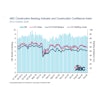Health experts warn that the question is not whether we will have a pandemic, but when. Responsible employers will take this warning seriously and begin now to prepare for the day when 40% or more of their workforce is absent due to a pandemic or a similar crisis. In anticipating this possible scenario, employers need to think outside of the normal business operations to consider revising some policies or benefits.
This article outlines a few actions employers should consider in preparing for a pandemic. Many of these changes may also be appropriate preparations for other types of workplace crises.
- Provide employees with free or discounted flu shots. Flu vaccines are intended to help people keep from getting sick. An additional benefit of giving flu vaccines is that, by keeping flu outbreaks to a minimum, we reduce the possibility that a normal flu virus that is not very virulent, but that is easily transmitted between humans, will mutate with a highly contagious, virulent strain of flu and cause a pandemic.
- Provide employees with free or discounted tetanus shots. Filthy conditions caused by the floods and hurricanes last year emphasized the need for employers in high risk areas or industries to provide employees with free or discounted tetanus shots.
- Review safety policies and practices. More than ever, employers should continually strive to adopt the "best practices" in safety for their employees. Immediate changes to prepare for a pandemic may include, among many others, education and communication programs, installation of additional hand-washing stations, or even spacing employee workstations.
- Insure short term disability and salary continuation programs. Many employers have short-term disability or salary continuation programs that are funded completely out of current assets. If 40% of the workforce is absent for an extended period, the drain on these programs will be significant and companies may not be able to fund these benefits. Employers can transfer this risk by adopting insured short-term disability benefit programs.
- Revise attendance and leave policies. Traditional attendance related policies are designed to penalize employees who are absent or tardy. However, if there is a medical or biological crisis, employers may not want sick or infected employees reporting to work or they may not have the luxury of terminating employees who are absent, even for an extended period. Employers will need to revise their policies to anticipate such crises and to provide practical solutions to these unique problems.
- Revise vacation or paid time off policies. Employers should consider adopting vacation or paid time off policies that allow employees to get advances of paid time off or to borrow against expected future benefits. Developing programs that allow employees to donate paid time off to other employees may prove beneficial in a pandemic. Revising the notice required before an employee takes vacation or paid time off may also be appropriate.
- Revise "no loans" and "no pay advances" policies. Historically, employers had policies expressly prohibiting loans and pay advances to employees. Polices relaxing these prohibitions and setting specific limits and conditions on loans and pay advances may also be helpful.
- Have a Disaster Communications Policy and System. The hurricanes of 2005 taught employers to have a plans for communicating with employees in the event of an emergency. The exact communications system will depend upon the nature of the business and other factors. However, at a minimum, have backup storage and communications systems and alternative means of communicating with employees if they are not available or if it is not possible for them to come to work. Consider having an alternative website ready to activate in the event of an emergency.
- Revise telecommuting policies. With employees not being able or willing to come to work, or employers wanting them to stay home, telecommuting will become a more attractive option to all concerned. Employers should start to lay the foundation for telecommuting and teleconferencing by investing in hardware and software systems, as well as implementing policies that favor telecommuting.
- Revise travel policies. Experience with SARS teaches that in the event of biological outbreaks, employees may be prevented from entering or leaving a particular region. Or, they may be stranded away from home. Employers should have polices and contingency plans in place to address the predictable travel restrictions and related issues that may arise in a pandemic.
- Allow for loans and hardship withdrawals from 401(k) Plans. When out of work due to crises, employees may need to draw upon their retirement savings to pay their day to day expenses. To prepare for this contingency, employers should make sure that their plans allow for loans and even hardship distributions and that employees know of these options.
- Engage an Employee Assistance Program ("EAP"). In addition to their normal services, EAPs can be especially helpful providing employees with professional counseling services and steering them to other community resources in the event of a pandemic or other crisis.
- Engage a professional health care provider, such as a company physician or nurse. Having an on-staff physician or nurse, or at least a continuing relationship with such a professional, can be helpful in dealing with all sorts of day to day issues. But, having such a professional up to speed with the employer's business and available in a pandemic can be invaluable.
- Review policy statements, handbooks, contracts, insurance-related documents and collective bargaining agreements for force majeure clauses. Force majeure clauses relieve parties to a contract from the requirements of the contract in the event of an "act of God." By way of example, an insurance policy may relieve the insurer of the obligation to cover an incident if it could be labeled an "act of God." Such provisions could then be used to deny coverage to business or medical losses caused by a pandemic. Similarly, an employer with a such a clause in its union contract may have the right to deviate from the contract or to make unilateral changes in the terms and conditions of employment. These clauses and the rights of the parties vary with each situation, but the bottom line is that responsible employers will review all documents to see whether such a clause should be included, deleted or revised.
- Form a 501(c) foundation. Employers and employees who contribute money to a tax-exempt foundation for the benefit of affected employees can deduct the contributions. Or, donations of accrued vacation pay or other paid time off by employees do not get taxed as wages. Similarly, any payment from the foundation to affected employees will not be taxed as "wages." Thus, employers and employees can benefit greatly from having a 501(c)(3) foundation in place before a pandemic strikes.
These suggestions are just a few actions that employers should consider taking now to prepare for a pandemic or similar crisis in the workforce. This brief list is not intended to be all-inclusive and there may be other appropriate actions that particular employers should consider.
D. Albert Brannen is a partner with the Atlanta-based law firm of Fisher & Phillips LLP, which represents employers across the country in labor, employment, employee benefits and business immigration matters. Contact him at 404.240.4235 or [email protected].



















